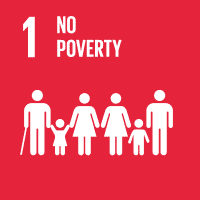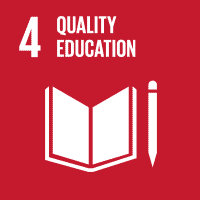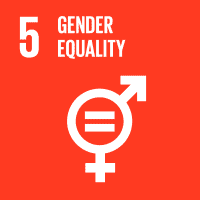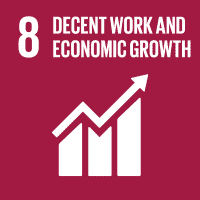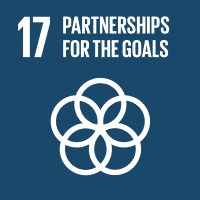The projects Innovative approaches for the financial inclusion of micro-, small and medium enterprises (MSMEs) in Jordan (I-FIN), and Employment-oriented MSME promotion support small businesses in Jordan so that they can better harness their potential and grow. On behalf of the German Federal Ministry for Economic Cooperation and Development, GIZ is working with the Central Bank of Jordan and other partners to ensure that more women, in particular, can access financial instruments such as microloans and loans.
Money for creative growth
For women in Jordan to start their own businesses, they need financial knowledge – and access to money and digital tools. We visited two women entrepreneurs who set out on this path.
The workplaces of Nisreen Pharaon and Reem Al-Smeirat from Jordan could not be more different. One runs a jewellery store in a chic shopping mall in Amman, the other a car workshop northwest of Jordan’s capital. What the two women have in common is that they both want to be self-employed. However, particularly for women, it is difficult in traditional society to get the loans and investment needed to boost and grow a business.
Nisreen Pharaon and Reem Al-Smeirat have not been deterred by such obstacles. They received support in setting up their own businesses from the Deutsche Gesellschaft für Internationale Zusammenarbeit (GIZ) GmbH and its Jordanian partners. Small enterprises are the heart of Jordan’s economy and account for the majority of jobs. This is important in a country whose population has doubled in the last 20 years – Jordan has taken in around 650,000 refugees from Syria alone.
Making small companies bigger
A car designer in Jordan
Fearlessly breaking new ground is Reem Al-Smeirat’s thing. Her passion for cars began as a child when her father gifted her a model of the iconic BMW 850. The fact that women have a hard time in the industry has not deterred her. She began by studying industrial design at the German-Jordanian University in Amman and completed a semester at the Magdeburg-Stendal University of Applied Sciences. In 2020, having completed a master’s degree in transport design, she was awarded a certificate for ‘the first woman car designer in the Middle East’ by a university located in Turin.
The young Jordanian then founded two start-ups. One is a car design company, with which she is currently working on a range of projects for new approaches to mobility in the Arab region. She also runs a workshop near Amman, which provides training courses in technology and car maintenance (mainly) for women.
‘To begin with, I knew nothing – nothing about how to calculate my taxes, how to register my company or how much it all costs,’ recalls Reem Al-Smeirat. ‘But the really difficult part of setting up a company is getting access to finance.’ A study published by GIZ and the Central Bank of Jordan has shown that micro-enterprises – in particular those with four or fewer employees – are almost never able to access loans. The reason for this is the conservative approach to credit rating checks, which often fail to give very small businesses a chance.
Reem Al-Smeirat benefited from ‘Wathba’, a women’s start-up programme run by GIZ partner Amam Ventures. ‘Wathba was the perfect safe place to think out loud, make mistakes and receive the right direction to move forward.’ The connections and networking with people from the industry were very helpful for her. Open discussions about every question and every thought with regard to her business idea were extremely valuable, recalls Reem Al-Smeirat: ‘Honestly at the beginning of the journey that’s what really matters and counts.’ The energetic car designer was finally able to get her business up and running. She received support and access to SME financial loans through a Development and Employment Fund for young people in Jordan.
So what tips would Reem Al-Smeirat give to other women looking to start their own business? ‘Read, research and learn as much as possible about supportive mentoring programmes and incubators,’ she says, adding a quote from Gandhi: ‘Be the change that you wish to see in the world.’
 Rajiv Raman
Rajiv Raman
Reem Al-Smeirat
Learning to run a business
Nisreen Pharaon is a very creative person. Standing beside the glass cabinets that display her handmade bracelets, necklaces and earrings, the Jordanian beams with pride. This is where she showcases her collection – in a gallery shared with other women designers in the fashionable Swefieh Village shopping mall. Her company is called Featherlight Jewelry. But getting her business off the ground was a weightier problem than the name suggests.
‘I had no idea about the financial side of things at first,’ she says. ‘I knew nothing about loans, business accounts and balance sheets,’ she explains, adding that she started small. Ten years ago – then a mother of three young boys – she decided to turn her hobby into a career. Encouraged by positive feedback from her friends, she started exhibiting her creations at bazaars and galleries in Amman. To begin with, no major investment was needed, and she was supported financially by her husband and her father.
‘When I opened my store here in 2019, I then realised that this was now a proper business.’ Soon after that, the coronavirus pandemic brought life in Jordan, like everywhere else, to a standstill. But Nisreen Pharaon did not give up. She advertised her jewellery on social media and took orders online. And she participated in a training course by Aman Ventures for young women entrepreneurs, a programme supported by GIZ.
‘The main benefit for me was the advice I got on financial and legal aspects. I needed help in these areas, since my focus as a creative is on whether my products look good,’ Nisreen Pharaon explains. ‘But that’s not enough.’ Thanks to her newly acquired financial knowledge, she was able to reopen her store after the pandemic and run it professionally. She now employs three women. And as a next step, the jewellery designer wants to set up a website. She is interested in how to manage her finances better and about new digital tools that that make financial transactions more straightforward for small businesses like hers, for example through easier invoicing.
One such tool is Qawn, which means ‘universe’ in Arabic. It is the first cloud-based social payment platform in the MENA region, the countries of the Middle East and North Africa. The app was presented in summer 2023 by the Jordan Ahli Bank, a partner of GIZ. More on fintechs, micro-enterprises and loan rating in the following interview.
